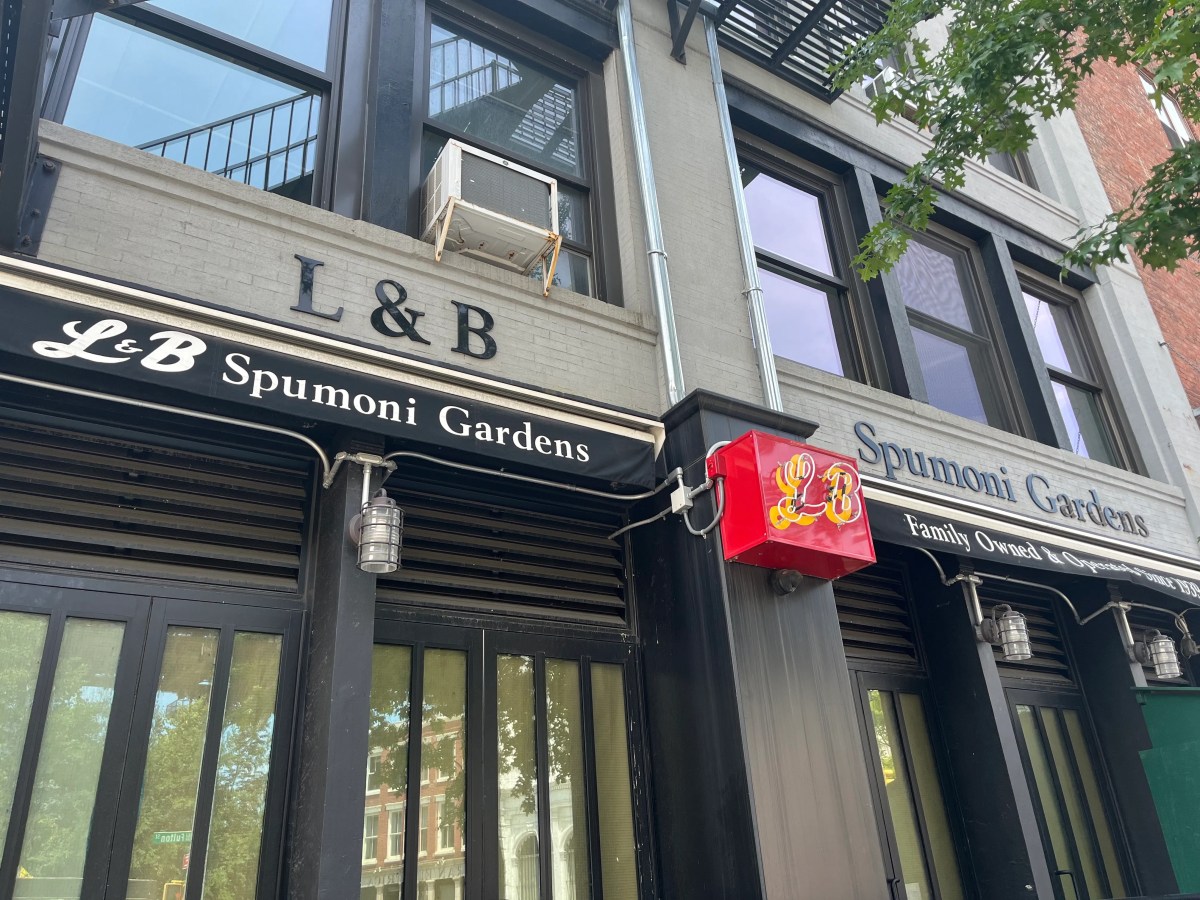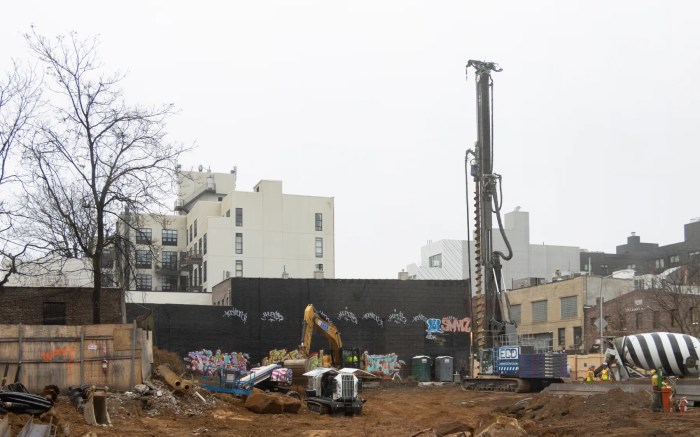By Rachel Lavine
For a Democratic political activist, going to the Democratic National Convention is the equivalent of a pilgrimage. This year especially, Democrats have been looking forward to the convention as a place to get energized and organized in the fight to win the White House for their nominee, Senator John Kerry. And this year’s convention more than meets these expectations — or, in the words of former State Senator Catherine Abate, an early Kerry supporter and a delegate: “We’re going to win.”
We’ve only been here a few days but here are some of my initial impressions and experiences:
We drive into Boston on Sunday, bracing for massive delays having heard that Route 93 is closed. We’re happily surprised when we are able to quickly and easily drive to our hotel and park the car — though that will be the last we see of it for the next few days. Even better, we are delighted to see an unofficial welcoming committee on nearly every overpass on the Mass Pike with signs and banners saying things like “Honk if you love Kerry.”
The D.N.C. doesn’t officially start until Mon. July 26 but already the parties associated with the event are in full swing. We kick off the convention by attending a benefit on behalf of the Matthew Shepard Foundation, an organization dedicated to eradicating hate crimes and established in the memory of Matthew Shepard, a 21-year-old murdered because of anti-gay hate. We speak to Judy Shepard, Matthew’s mother, a soft-spoken and self-effacing woman who seems both pleased and somewhat overwhelmed by the massive attendance at the event. Howard Dean is the headlining speaker and his passion and rhetoric practically elicit a call and response from the crowd. Congressmember Barney Frank, who is one of the Massachusetts politicians who may run to fill Senator John Kerry’s seat if he’s elected president, is also there, along with many delegates, D.N.C. members and political activists.
We have to get up at the crack of dawn the next morning to collect our D.N.C. credentials — a daily task — and begin the political schmoozing in the hallways of the hotel. We start the substantive political part of the day by going to the L.G.B.T. Caucus meeting. It’s being held in the Sheraton — a massive complex that seems to serve as a hub of both political organizing and commerce — the halls are filled with incredible displays of sloganeering T-shirts, buttons and bumper stickers — all tempting to the many political junkies congregated there. While there we run into Congressmember Jerry Nadler in the halls searching for the Women’s Leadership Federation’s no C.A.R.B. lunch — as in no Cheney, Ashcroft, Rumsfeld and Bush.
The L.G.BT. Caucus room is packed. From the podium, New Yorker Jeff Soref, a D.N.C. member and major leader and donor in the gay community, tells the crowd that this is the most diverse and inclusive convention in the history of the party: there are a historic number of openly L.G.B.T. delegates; 40 percent of the delegates are people of color and about half are women. The front row is lined with New Yorkers: Assemblymember Daniel O’Donnell; Councilmember Christine Quinn; Fred Hochberg, New School University dean and D.N.C. member; Alan van Cappelle, Empire State Pride Agenda executive director; and Emily Giske, a Villager and D.N.C. member.
In the crowd, I spot two Community Board 2 members, Brad Hoylman, president of Gay and Lesbian Independent Democrats, and Melissa Sklarz, one of 12 transgendered delegates at this year’s convention. Roberta Achtenberg, former assistant secretary of HUD and one of the top out-lesbian appointees in the Clinton administration, describes the nature of this year’s platform document and how it was constructed. The platform, which was drafted after hearing from hundreds of people, is much shorter than in previous years and paints in broad strokes an affirmation of the Democratic Party’s values and goals. Among other statements — including one in support of our servicemembers, the platform speaks to honoring and respecting a safe workplace, to fighting the scourge of H.I.V./AIDS and to recognizing full inclusion of lesbian and gay families that seek equal responsibilities, benefits and protections.
What we’re most eagerly anticipating is the convention itself. When we get to the Fleet Center, we see that it is closed off for at least a quarter of mile and surrounded by barricades and new fencing. Security is very high but also very efficient and we move through the various checkpoints with relative rapidity. We do wonder what will happen in New York for the R.N.C. Boston’s Fleet Center is at the edge of the city and they’ve shut off what would be the equivalent of several city blocks. Once inside the convention, we try to find the seats to which our green tickets entitle us, but we’ve gotten there too late — around 7:00 — and end up sitting in vertigo-inducing seats a few rows from the back.
We are, however, thoroughly enjoying being in the main room where all the action is occurring and get to witness one of the funniest live moments of the convention — which epitomizes much of the zeitgeist of the first night. Officials sought to take a group picture of the entire convention, exhorting delegates to stay still and focus gaze on “the digital clock right past Fox News cameras.” The mere mention of Fox News — a news venue known for its partisan reporting — elicits a wave of spontaneous catcalls and laughter from the assembly.
Indeed the whole evening feels engaged, focused and proud: of our leaders past and present, of our platform and its planks of inclusiveness, respect and responsibility and of the diversity of not only the Democratic Party, but the United States itself. There is a profound sense of unanimity of purpose — of the absolute necessity to win in November. Assemblymember Deborah Glick noted, “Every convention has its own culture and atmosphere. This year there is a common understanding that the time to debate within ourselves is not now. The time to debate with ourselves is after we win.”
And the lineup for the evening is terrific — all of the living past Democratic presidents, Jimmy Carter and Bill Clinton, and someone who was almost president, Al Gore. The message, as Abate notes is, “Democrats are finally parading our past leaders because we’re proud of them and what they stand for.” And the hallmark of the evening is one of positive diversity: the evening’s other speakers include the nine women U.S. Senators, Latino Governor Bill Richardson and openly lesbian Congressmember Tammy Baldwin. “There is a prominence of women at this convention,” notes Abate, “Democrats are recognizing the importance of the women’s vote. When women vote, Democrats win.”
We see most of the speakers from our aerie in the sky but are eventually rescued by a friend who has managed to get access to a suite with a direct view of the stage — Rob Reiner’s box. All of the speakers are great but the electricity in the air really begins to get charged when Al Gore speaks — powerfully reminding the crowd of how we lost the last election, what we lost along with that election and how critical a Democratic victory is for the entire world.
Shortly thereafter, Reverend David Alston, a minister from South Carolina who served in Vietnam and on the gunboat under John Kerry’s leadership, speaks. His speech is truly one of those moments of truth to power. Reverend Alston tells the crowd about the perils and cruelties of war — and of its occasional necessity. But he argues that when you go to war, you want to know you will have a leader who understands the nature of the danger we face — and how to beat it. Rob Reiner is going crazy behind me: “This is it! They can’t beat us on this issue! This is the critical issue for this election and our turning point!”
Many of the speakers mentioned 9/11, but it is left to Hillary Clinton to talk about the impact of that day and that tragedy upon the entire nation. She tells the crowd that she toured the World Trade Center site the day after the attacks and felt that she “stood at the gates of hell.” And she talks about the critical federal funding for rebuilding that New York is still not receiving and the grave security deficiencies we still have. Then she moves into a rousing rally of support for John Kerry, noting to the laughter of the crowd, “I think I know something about good leaders.” The New York delegation wildly waves “I Love Hillary” placards during her speech. Immediately afterwards, one of the most beautiful moments of the convention occurs as the lights are turned off and the Fleet Center becomes a basin of shadows lit by thousands of tiny flickering lights. A 16-year-old boy plays a violin solo of “Amazing Grace” while the crowd stands utterly silent in memory and tribute.
Then it is time for the main speaker: former President Bill Clinton. While he speaks you can feel a palpable longing for his presidency. Clinton’s speech in my view will go down in history as one of the great political speeches of all time. It will be remembered not only for its passionate eloquence but its masterful detailing of the case against the Bush administration — and for Democratic values of pluralism and fairness. Or, in Clinton’s words, an argument of behalf of a belief system that holds that “America is a better place when everyone has a chance to realize their dreams.” Clinton speaks with conviction on behalf of John Kerry’s candidacy, noting that “In a time of great change, he has two very important qualities: an insatiable curiosity and a willingness to hear the views of those who disagree with him.”
Speaking in support of John Edwards, Clinton declares that he will help those “who are left out and left behind.” However, that which exemplifies the tenor of Clinton’s remarks — and draws the strongest applause from the assembly — is his statement that “Strength and wisdom are not opposing values.”
Lavine is the Democratic State Commiteewoman for the 66th Assembly District.
WWW thevillager.com







































